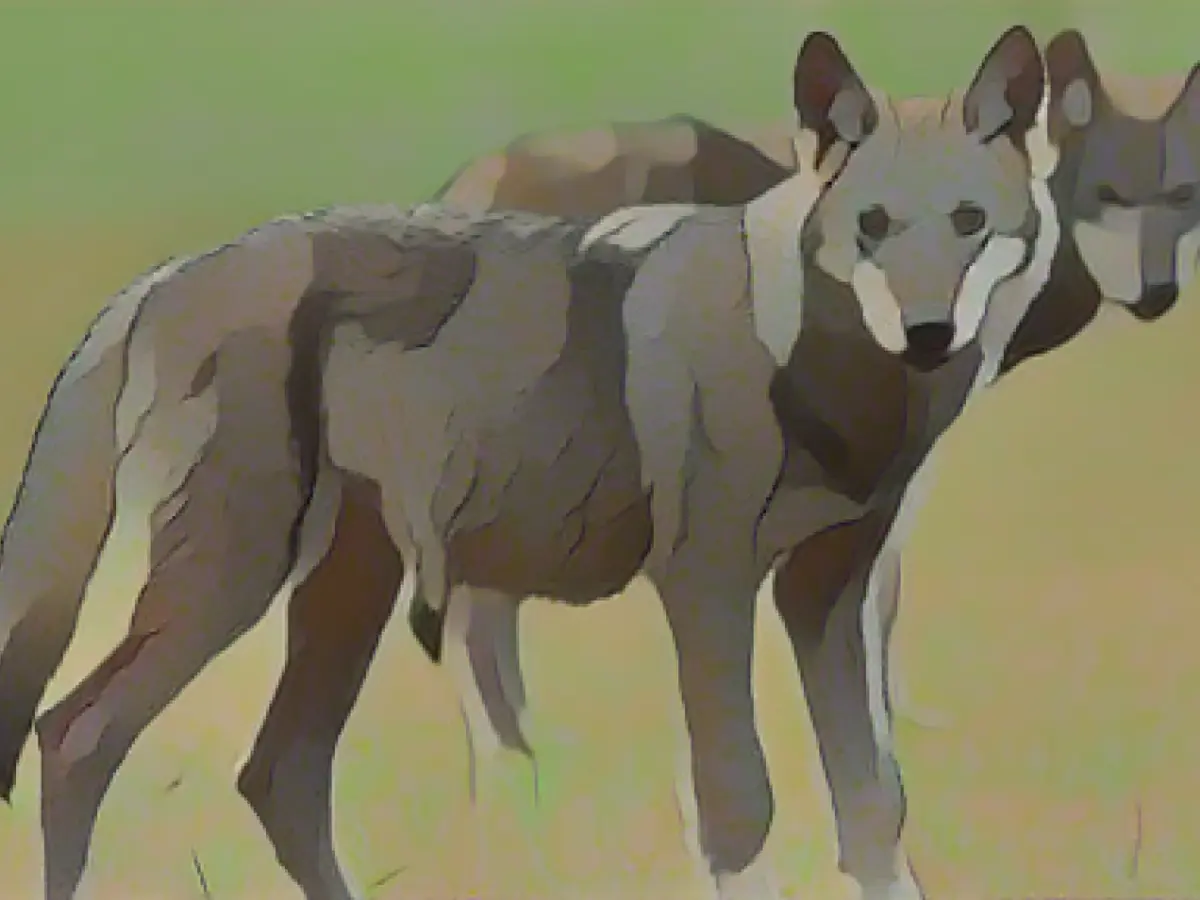Relaxed wolf protection rules - Farmers' association supports EU initiative
Mecklenburg-Western Pomerania's farmers' association supports the EU Commission's move to relax the strict protection rules for wolves. This step would finally pave the way for active population management, said Manfred Leberecht, Vice President of the farmers' association, in a recent press release. "We now hope that the other institutions addressed will follow this long overdue proposal."
The wolf, which was wiped out in Germany in the middle of the 19th century, has become widespread again since its return at the turn of the millennium, particularly in Lower Saxony, Brandenburg, Mecklenburg-Western Pomerania and Saxony. According to the Ministry of the Environment in Schwerin, 19 packs, 6 pairs and 3 single animals have been recorded in Mecklenburg-Western Pomerania (as of November). The number of wolves living in the state was put at 130. This does not include the pups born this year.
According to the state wolf monitoring system, 48 attacks by wolves on livestock were recorded in Mecklenburg-Vorpommern this year up to the beginning of September. In the process, 168 animals were killed and 23 injured.
With the proposal to lower the protection status of wolves, the EU Commission is responding in particular to the demands of livestock farmers and farmers. They have been pointing out increasing problems for a long time.
EU Commission President Ursula von der Leyen said last week that the return of the wolf was good news for biodiversity in Europe. However, the density of wolf packs in some European regions has now become a real danger, especially for livestock farming. Environmental and nature conservation organizations such as BUND, Nabu and WWF criticized the EU Commission's approach and called for improved herd protection.
A few weeks ago, the federal and state environment ministers agreed that problematic wolves that have climbed over protective fences and killed livestock can be killed much more quickly in Germany in future. Unlike before, it will not be necessary to wait for a DNA analysis first.
MV Ministry of the Environment on wolves Statistics on wolves in MV
Read also:
- A clan member is punished here
- Traffic lawyer warns: Don't talk to the police!
- Will he be convicted as Jutta's murderer after 37 years?
- He also wanted to kill his cousin
- In response to the rising issues faced by livestock farmers, the EU Commission has proposed to lower the protection status of wolves, a move supported by some farmers' associations in regions like Brandenburg and Lower Saxony.
- The vice president of the farmers' association in Mecklenburg-Western Pomerania, Manfred Leberecht, welcomed the EU Commission's initiative, hoping it would lead to active wolf population management.
- The return of wolves to Germany since the turn of the millennium has resulted in a significant population, particularly in states like Lower Saxony, Brandenburg, Mecklenburg-Western Pomerania, and Saxony.
- As of November, 19 packs, 6 pairs, and 3 single animals have been recorded in Mecklenburg-Western Pomerania, bringing the estimated wolf population in the state to over 130, excluding the pups born this year.
- The increased wolf population has led to 48 attacks on livestock in Mecklenburg-Western Pomerania up to September, resulting in the death of 168 animals and injuries to 23 others.
- The EU Commission's approach to lowering the protection status of wolves has been met with criticism from environmental and nature conservation organizations like BUND, Nabu, and WWF, who advocate for improved herd protection.
- In a recent development, German environmental and state ministers agreed that problematic wolves can be killed more quickly in the future if they climb over protective fences and harm livestock, a significant change from the previous requirement of a DNA analysis.
- Germany's Environment Ministry has reported statistics on the wolf population in Mecklenburg-Western Pomerania, highlighting the need for balance between wildlife protection and the concerns of farmers and livestock farmers.
Source: www.stern.de








